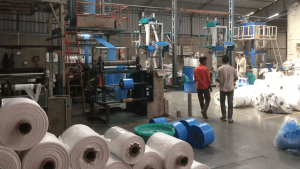
[ad_1]
In a positive turn of events for the citizens of Pakistan, petrol prices are expected to witness a significant drop of up to Rs10 per liter, accompanied by a Rs2 per liter reduction in diesel prices for the next 15 days starting January 15. This encouraging development is attributed to the simultaneous decline in global oil prices, the strengthening of the Pakistani rupee against the US dollar, and a reduction in the premium on petroleum products.
As of today, the current petrol price in Pakistan is Rs267.34 per liter, while diesel stands at Rs276.21 per liter. Over the past fortnight, global petroleum prices have experienced a downturn, with petrol dropping from $84.50 to $83 per barrel and diesel from $97 to $95.85 per barrel.
Additionally, the Pakistani rupee has appreciated against the dollar, settling at Rs280.40 on the last trading day, compared to around Rs283 at the end of December. With these favorable market conditions, there is a strong possibility that petrol prices could see a reduction of at least Rs9 per liter, while diesel prices may decrease by Rs2 per liter. Kerosene and light diesel oil are also anticipated to witness a drop of around Rs2 per liter.
Read more: Anticipated significant drop in petrol prices in Pakistan from January 16
Currently, the government imposes a maximum petroleum levy of Rs60 per liter on both petrol and diesel. The initially set budget target of collecting Rs869 billion through petroleum levy during the fiscal year 2024 with the IMF might be surpassed, with expectations exceeding Rs950 billion by June. Notably, the government collects about Rs82 per liter in taxes on both petrol and diesel, with zero general sales tax on all petroleum products. The government also levies Rs60 per liter as petroleum development levy and Rs50 per liter on diesel, high octane blending component, and 95 research octane number (RON) petrol.
This reduction in fuel prices is expected to bring relief to the public and contribute positively to inflation control, as petroleum products and electricity prices play a crucial role in influencing inflation rates. The government’s decision to keep petrol and diesel prices unchanged at the beginning of the new year, coupled with these subsequent reductions, reflects a commitment to ensuring economic stability and providing relief to the citizens.
[ad_2]
Source link





